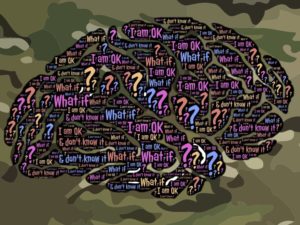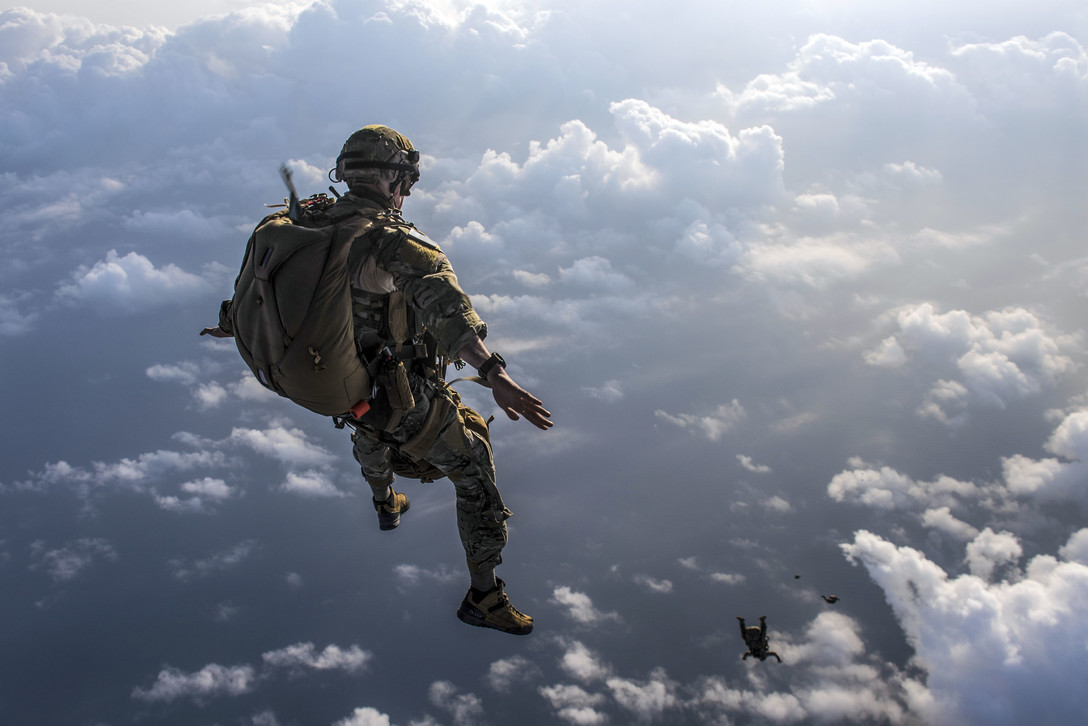
Maybe my point of view is somewhat skewed. I work with veterans daily who are struggling with challenges they are having as a result of their experiences. Relationships, reaction to both combat and non-combat trauma, lack of a sense of purpose and meaning, substance addiction. A lack of understanding about why they think the way they think, even sometimes a lack of awareness of the impact of how they’re thinking has on their behavior.
Call them weak? You’ll have me to deal with. The stress and pressure, which many who have not served or have not stood alongside those who have served are simply unaware of, is unfathomable. The appreciation that veterans have for the freedoms and luxuries that others take for granted is almost cliché.
At 19 years old, I slept on a cot for a year while deployed to Bosnia. My room in Kabul, considered a palace by many because I didn’t have to share it with someone else, was a six foot by ten foot room that would be more properly described as a large closet. The sheer number…and weirdness…of things that were missed or gone without during a veteran’s service is so long that your eyes would glaze over before you even got a quarter of the way through it. The strangest thing for me? Slurpees. After two tours in Germany, Iraq, Afghanistan (twice), North Africa, I miss me a Slurpee. I’ll drink a Slurpee in the middle of a snowstorm, I don’t care. Icees don’t cut it…you know what I’m talking about…it has to be a Slurpee.
The sacrifice extends to our families. My children attended more different elementary schools than most kids attended in their lifetime. It’s not urban legend that military families move often; my wife and I lived in nine different houses in the first ten years of our marriage. Contrary to what many civilians experience, we have dozens of different “jobs,” often at the same time, many at different times throughout our time in the military.
Don’t get me wrong, this isn’t a “my life sucks more than yours, so cut me some slack or give me some good stuff” post. It’s not a “be appreciative for what you have, because others ain’t got it so good, either” post.
No, this is a post about a question that I think a lot of veterans have:
What if I’m doing this wrong?
The “if” could be dozens of different things. This relationship. Job hunting. My way of dealing with what I saw in combat. Transition out of the military, whether it’s after four years or twenty-four. For some veterans, those most hurting and vulnerable, may even ask if they are doing Life wrong, and come to a heartbreaking and unbearable conclusion.
Maybe this is a dark and depressing post to be sharing. Like I said, maybe my point of view of veterans is skewed, but with the insanely and tragically high rate of veteran suicide, the stress that military life puts on families, the gulf between what veterans experienced and those who are not veterans or family members don’t understand, I think that this doubt in someone who was so previously confident is important to recognize.
What if I’m doing this wrong? When that doubt starts to creep in, maybe the veteran starts to lose hope. Maybe they start to wish for the Glory Days, as Springsteen said. What we…all of us, not just veterans…seem to forget is, like Billy Joel said, “the good old days weren’t always good, and tomorrow ain’t as bad as it seems.”
Do we, as a community, really want that? Do we want those who have volunteered to serve our country to question whether or not their service was worth it, only to get out and find that it is a challenge for them to get health care, stay housed, to find meaning and purpose in their lives?
In his recent book, Tribe, Sebastian Junger writes: “Humans are so strongly wired to help one another – and enjoy such enormous social benefits from doing so – that people regularly risk their lives for complete strangers.” Upon reading that, my question was: what happens when your will to help others no longer results in social benefits? No, this generation of veterans is not receiving the scorn or indifference that previous generations have, but understanding is not also there.
On Veteran’s Day, on Memorial Day, the 4th of July, any of the patriotic holidays, appreciate veterans, absolutely. Thank them for their service. But maybe do more than that…maybe listen to them. Don’t judge them. Try to understand them. Appreciate them by allowing them to know that what sacrifices they made, what sacrifices their families made, are absolutely worth it.
Let them know that they’re not doing this wrong at all.



